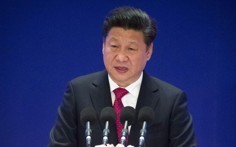PUBLISHED : Sunday, 17 January, 2016, 7:41pm
UPDATED : Sunday, 17 January, 2016, 7:47pm
Why China will not sharply devalue the yuan
Beijing faces long battle with speculators, but tinkering with the currency would be counterproductive and at odds with its international stance
Wang Xiangwei
[email protected]

A currency exchange store in Hong Kong. Borrowing costs for offshore yuan in the city shot up by 200 per cent at one point last week. Photo: Bloomberg
Plunging stocks and currency have made a grim start to the new year in China. The closely watched Shanghai Composite Index fell 3.6 per cent on Friday, down more than 20 per cent from its recent high, therefore entering bear market territory.
Concerns over the Chinese economy and a free fall in oil prices have helped trigger a global stock market sell-off. The major US stock indexes fell more than 2 per cent after the Hang Seng Index ended the week with a 4.6 per cent loss.
Currency speculators have started to circle the yuan as China’s capital outflow has accelerated, forcing the mainland’s central bank to take drastic moves to squeeze the speculators by buying yuan and selling the US dollar heavily in the offshore markets last week. The move caused the borrowing costs for offshore yuan in Hong Kong to shoot up by 200 per cent at one point. While the yuan has stabilised following the heavy intervention, expectations are strong that it will continue to weaken amid a slowing economy and massive capital outflows.
Indeed, it is hard to be optimistic about China’s economic prospects and some foreign economists are now saying that China’s economic bubble has already burst. The economy is estimated to have grown at 6.9 per cent last year, down from 7.4 per cent in 2014. For the years from 2016 to 2020, the government has set an even lower growth target of 6.5 per cent.
Against this background, the massive sell-off in stocks and yuan has greatly undermined investors’ confidence in the ability of Chinese leaders to steer the world’s second largest economy forward.
If they are worried, they have put on a good poker face. China had the confidence and capability to ensure sustained and sound economic development, President Xi Jinxing said at the opening ceremony of the US$100 billion Asian Infrastructure Investment Bank in Beijing.

China had the capability to ensure sound economic development, President Xi Jinxing said at the opening ceremony for the Asian Infrastructure Investment Bank in Beijing last week. Photo: AFP
Meanwhile, Premier Li Keqiang has also tried to talk up the positives, saying the economy was up nearly 7 per cent last year, employment had grown more than expected and income had also risen.
He said China had no intention to use a cheaper yuan to boost exports and had the tools to keep the currency stable.
But they will find it tough to convince investors as the economic data for 2015, to be released later this week, is expected to raise a fresh wave of concerns about the health of the Chinese economy.
Indeed, how to stabilise the stock and currency markets this year will prove to be an acute test of the wisdom and capability of the leadership.
On stock markets, the authorities have failed miserably so far, exemplified by the ill-considered introduction of the circuit breaker mechanism, only to have it suspended four days later. The rules were meant to act as a kind of emergency brake to combat the wild market swings but had the opposite effect.
The authorities have been micro-managing the mainland’s stock markets since their inception in the 1990s, which has been a key contributor to the swings and prevented the markets from becoming more mature and professional.
It is high time that the leaders learn the lesson and get rid of what Liu He, one of President Xi’s most trusted economic advisors, has called a paternalism mentality.
While it may take time and effort to change the old habit, the authorities can signal their determination by changing the top leadership of the China Securities Regulatory Commission as the first step to restoring investors’ confidence.
On the currency front, China’s battle with speculators is expected to be a prolonged one for this year. Although Chinese leaders including Premier Li have repeatedly vowed to keep the yuan stable, speculators are unlikely to be scared away amid a slowing economy and expanding capital outflow.
It is interesting to note that while the mainland media like to play up the conspiracy theory that the attacks on the yuan were orchestrated by a group of highly sophisticated international speculators aspiring to be the next George Soros, who famously broke the Bank of England, the authorities have conclusive evidence that the speculators are mostly domestic, in Guangdong, Shanghai and Zhejiang as well as Hong Kong and Taiwan. They have mainly been using the offshore yuan markets in Hong Kong and hence the heavy intervention last week.
In theory, a continuous devaluation in the yuan may help China’s exports and prevent a sharp fall in asset prices at home, but the mainland authorities have good reasons not to tinker with the currency too much – not least because this would help trigger competitive devaluations by other countries which would in turn wipe out the benefits from such an action.
More interestingly, Beijing assured Washington that it would keep the yuan stable after the US approved changes to International Monetary Fund governance to give China a bigger voice and agreed to add the yuan to its reserve currency basket.
